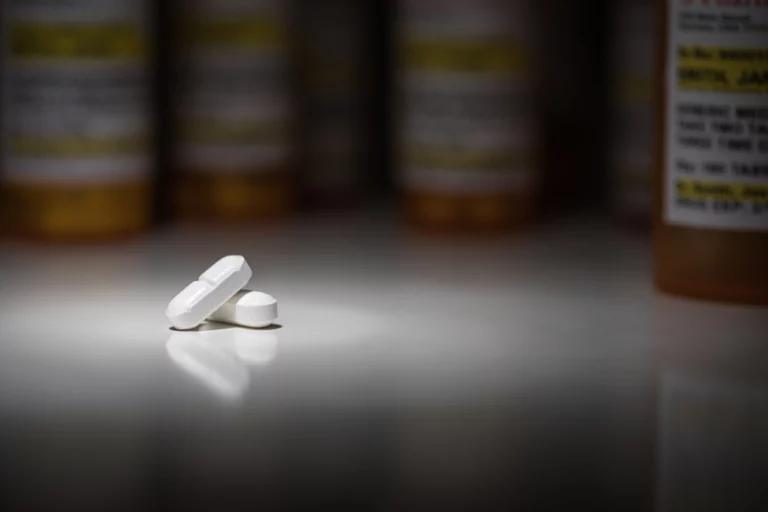The Benefits of Peer Support in Outpatient Addiction Treatment
Addiction doesn’t discriminate – it can affect people from all walks of life. In 2021, there were almost 1,900 opioid overdose deaths in Kentucky, accounting for 80% of all drug overdose deaths across the state. For anyone undergoing outpatient addiction treatment, overcoming the hurdles of addiction requires more than just medical care; it requires a strong support system. There are many ways to find support during outpatient addiction treatment, including peer support.
What is Peer Support?
Peer support is all about people who’ve been through addiction and recovery themselves offering guidance, empathy, and encouragement to those still in treatment. These peers, often known as peer recovery specialists or peer support workers, understand the ups and downs of addiction recovery firsthand. They share their personal stories, provide emotional support, and help others navigate the challenges of staying sober.
What is Outpatient Addiction Treatment?
Outpatient addiction treatment lets people keep up with their daily lives while getting the help they need to overcome addiction. Unlike inpatient treatment, where patients stay at a facility, outpatient programs allow them to live at home and attend scheduled sessions. This approach works well for those with mild to moderate addiction who have strong support systems at home. However, success in outpatient treatment often depends on ongoing support, making peer support a key factor.
The Benefits of Peer Support in Outpatient Treatment
When it comes to beating addiction, having a solid support system can really help. Peer support, especially in outpatient treatment, gives people the chance to connect with others who’ve been through similar struggles. These connections provide understanding, empathy, and encouragement, all of which are key to staying sober.
- Shared Experiences: One of the biggest advantages of peer support is the shared experiences between the support worker and the individual in treatment. This common ground fosters a sense of understanding and trust that can be hard to achieve with healthcare professionals who haven’t experienced addiction firsthand.
- Emotional Support: Addiction recovery is an emotional journey. Peer support workers provide a non-judgmental space where individuals can express their feelings, fears, and hopes. This emotional support is vital in reducing feelings of isolation and hopelessness.
- Motivation and Accountability: Peers serve as living proof that recovery is possible. Their success stories and ongoing sobriety offer motivation to those in treatment. Additionally, peer support workers can help individuals set realistic goals and hold them accountable, which is crucial for maintaining progress in an outpatient setting.
- Practical Guidance: Beyond emotional support, peers can offer practical advice on coping strategies, relapse prevention, and navigating social situations. Their firsthand experience allows them to provide insights that are both relevant and practical.
- Building a Support Network: Peer support helps individuals in treatment build a broader support network. Connecting with others who understand their journey can lead to lasting friendships and a stronger sense of community, which is essential for long-term recovery.
At the end of the day, peer support can be a game-changer in outpatient treatment, offering the understanding and connection needed to stay strong on the journey to recovery.
The Forms of Peer Support Available
Peer support in outpatient addiction treatment comes in a variety of forms, each designed to meet people where they are in their recovery journey:
- Support Groups: Regularly scheduled support group meetings offer a safe space for folks to share their experiences and get support from others who understand. These groups usually follow a set structure and are led by trained peer support workers.
- One-on-One Mentorship: Some people might benefit more from personalized support through one-on-one mentorship. Here, a peer support worker builds a close relationship with the individual, offering guidance and encouragement tailored to their specific needs.
- Telephone and Online Support: With today’s technology, peer support is also available through telephone hotlines and online platforms. These options are great for those who can’t make it to in-person meetings due to distance or time constraints.
- Community-Based Programs: Many communities have peer-led programs that provide a range of services, like educational workshops, recreational activities, and social events. These programs help individuals feel part of a supportive community, boosting their sense of belonging and purpose.
Whether it’s through regular support group meetings, personalized one-on-one mentorship, or even digital options like telephone and online support, there’s a method to suit everyone.
Special Considerations for Peer Support in Outpatient Addiction Treatment
While peer support is incredibly valuable, it’s important to be aware of a few challenges. First, making sure peer support workers get the right training and certification is key. This training helps them provide solid support while keeping things professional. Finding the right balance between being a peer and maintaining boundaries can be tough, so they need to handle these dynamics carefully. Also, integrating peer support with professional medical and therapeutic care requires some coordination. Treatment centers should work to create a good partnership between peer support workers and healthcare professionals to offer a well-rounded approach to recovery.
Peer Support in Outpatient Addiction Treatment at Louisville Recovery Center
Peer support is crucial in outpatient addiction treatment, offering emotional support, motivation, and a sense of community. The shared experiences between peers make recovery less isolating and more manageable. As addiction treatment evolves, peer support will remain essential to effective care.If you or someone you know is navigating the challenges of addiction, Louisville Recovery Center is here to help. Our peer support programs provide a compassionate community ready to support you every step of the way. Reach out to us today to learn how we can be part of your recovery journey. Together, we can build a healthier, stronger future.







